Research Topics
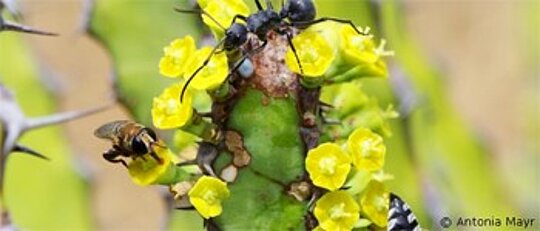
Biodiversity Research
The immense diversity of organisms is one of the most striking features of ecosystems, but currently the majority of species is still undescribed and many species are threatened from extinction due to human impact. We aim to understand the ecological and evolutionary factors shaping the richness and structure of animal communities in natural and anthropogenic habitats. In our research we investigate the consequences of habitat fragmentation, climate change and invasive species on genetic, interaction and species diversity. We are particularly interested in the relationship between biodiversity and ecosystem functioning, the underlying ecological mechanisms and the socioeconomic consequences of biodiversity loss.
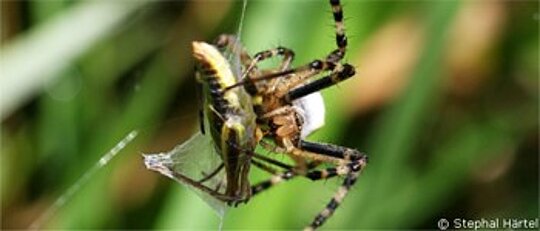
Biotic Interactions and Food Webs
We are interested in the causal mechanisms and the direct and indirect impacts of these diverse interations on the reproduction and population dynamics of plants and animals, the stability of food webs and communities, and on related ecosystem processes. In particular, we investigate plant-pollinator, plant-herbivore, plant-ant and host-antagonist interactions. We study these interaction not only in easy to manipulate experimental systems but also at larger scales in real systems to better understand the effects of environmental change on biotic interactions and related ecosystem services.

Effects of Global Change
We study single and combined effects of habitat fragmentation, climate and land use change on species richness and biotic interactions such as pollination, herbivory and predation. Research approaches include the study of altitudinal gradients and fragmentation gradients in tropical and temperate habitats as well as the simulation of extreme climatic events.
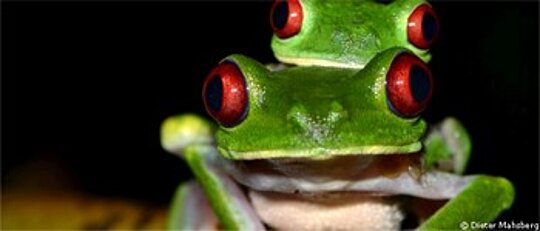
Conservation Biology
Most remaining conservation areas of natural habitats are small and isolated by a different landscape matrix from each other. We are interested in the factors that ensure long-term survival of endangered animal species, including local and regional habitat and landscape management, dispersal, ecological interactions, population dynamics, genetic diversity and adaptive capacity to changing climatic conditions.
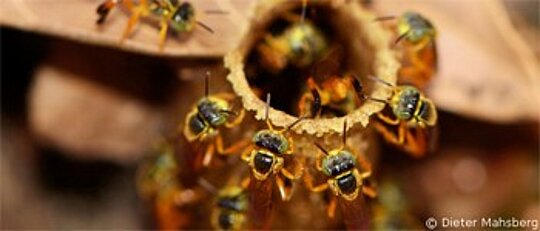
Evolutionary Ecology and Population Genetic
Our research centers on the evolution of life history strategies – with a special focus on dispersal – and the implications of these strategies for biological diversity and species survival in spatially and temporally heterogeneous landscapes. It encompasses all aspects of dispersal evolution and its implications for species distributions and species survival under global climatic change, but also topics like the analysis of mutualistic and parasitic interactions, the evolution of species diversity, the evolutionary value of physiological clocks and adequate timing of life history events, and even studies on the evolution of sociality in insect colonies. Our work aims at a deeper understanding of evolutionary mechanisms and a further development of ecological theory, thus our group consists mainly of theoretical ecologists and we mainly use analytical approaches and computer simulations in our work.
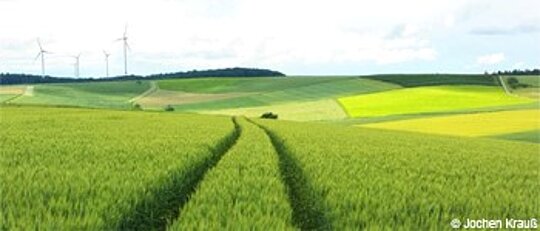
Agroecology, Forest Ecology, Biosafety Research
A growing human population demands the majority off the terrestrial surface for agriculture, forestry and settlement. As a consequence highly diverse tropical rainforests and species-rich traditional agroforestry systems are lost at increasing rates. In our research we quantify the consequent biodiversity loss and search for sustainable agroforestry systems that might reconcile the production of food with the protection of biodiversity and ecosystem services. With a related motivation we study in European agroecosystems the role of local management, landscape structure and crop rotations on functional diversity and ecosystem services such as crop pollination and biological pest control. Further, we evaluate the effectiveness of agri-environmental schemes, the effects of biofuel crops and perform biosafety research on non-target effects of GMO´s on honeybees and other pollinators.
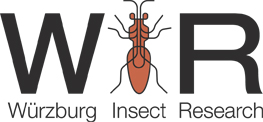
WIR
We are partners of Würzburg Insect Research (WIR). WIR is a leading centre for insect behavioural neurobiology and ecology. WIR is an active network of collaborating laboratories that transcends institute and faculty borders at the University of Würzburg. WIR includes researchers at the Neurobiology and Genetics, Zoology II, Zoology III, and further groups at the Biocenter belonging to the Biological or Medical faculty, as well as the Center for Computational and Theoretical Biology.








